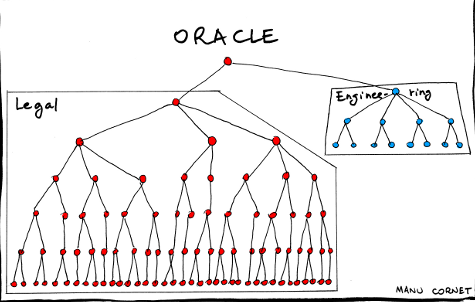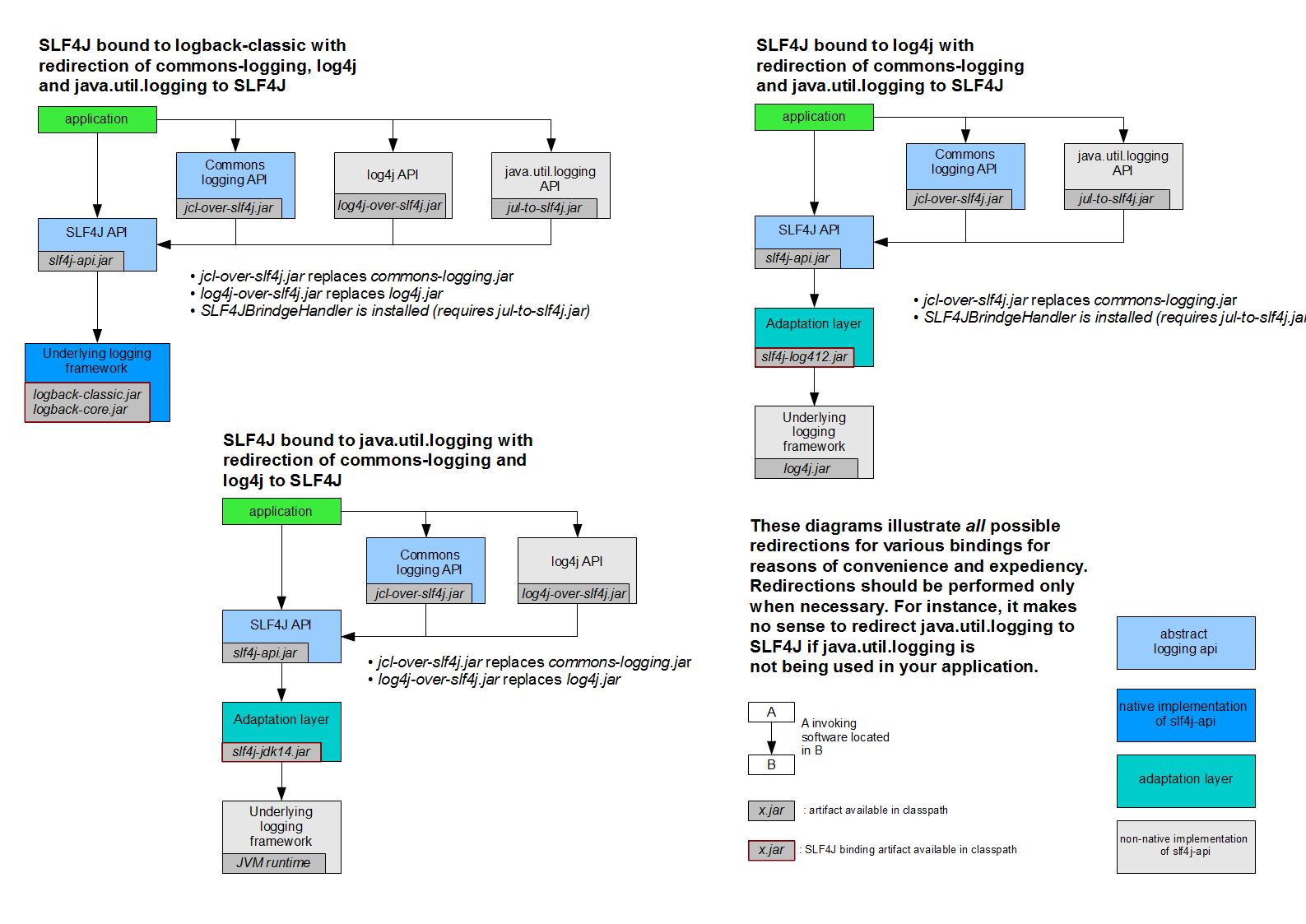There is an ongoing upheaval in Java community about the lack of progress/clarity by Oracle over JEE. There has always been a friction between community and Oracle, but the fight is finally out in the open. Read this excellent article detailing the timeline of the ordeal.
Oracle has a distinct personality. Most in tech industry have an agreed upon opinion of Oracle. These opinions are formed and reinforced by court case claiming $8 billion for using 37 packages’ APIs, Java leaders quitting Oracle, thrown out Java champions, stifling alternate JVM implementations.. the list goes on and on.

Image Source - http://www.bonkersworld.net/organizational-charts/
As the article mentions, OpenJDK and its stewards might finally break the ties with Java completely and go solo in advancing the Java platform. Though Java’s licensing model, enterprises’ insistence of using certified Java, and the effort/timescale for such undertaking might not allow such split to be fruitful.
Side note - This feels similar to W3C vs WhatWG - where the browser vendors were tired of the slow pace of innovation in Web and formed their own committee, threatening the existence of W3C. W3C had to bow under pressure and agreed to form joint committee with browser vendors to address the concern.
It would be unfair to pick on Oracle though. Even before Oracle acquired Sun, the official Java platform has been way too slow in addressing developer’s needs.
Java SE release train
- Java 5 (2004) was first major release in terms of APIs/language-updates.
- Java 6 came along couple of years later without adding much to the language.
- Java 7, the next major release came after a gap of whopping 7 years.
- Java 8 was released in 2014, 3 years later.
- Java 9 itself has been mired in delays and is expected to come out in 2017.

Java Logging
Its not just the Java core platform. Most of the JCPs were created in wake of open source alternatives getting popular. The primary and perhaps most shocking (for me) example has been Java logging.
Logging is one of the most fundamental functionalities of a language. Never baked into the language, logging libraries were introduced by the community. Log4J is an amazing library for logging which has been serving Java developers well over the years. The community though, due to lack of consensus, created multiple competing wrappers to allow use of other libraries like Logback. The apparent mess is depicted below. While the official Java solution came years later with Java 7.

Try setting up log4j or logback with Tomcat, Spring MVC and varied bunch of 3rd party libraries. It can be a really painful experience.
Java EE & Java Community
Logging is just one of the many examples of this pattern:
community creates library -> it becomes popular -> corresponding JCP/JEP is created years later -> library is tweaked to be JCP compatible
Here are some of more examples:
| Community | Year | Year | Official |
|---|---|---|---|
| Spring DI | 2003 | 2009 | Java DI |
| Hibernate | 2001 | 2006 | JPA |
| EH cache | 2003 | 2014 | JCache |
| Joda | 2002? | 2014 | Java 8 date/time |
I am sure there are many more (web services, messaging, OSGI, security etc).
I think the popularity of Java has been fueled by tremendous ecosystem/community and not the core platform itself. All the while developers suffer. Due to lack of quorum the libraries take a while to become production ready. And developers have to learn both original and official set of APIs.
What next
Java is rapidly losing developer mindshare. It is chugging along only thanks to large enterprises (especially in Finance industry).
I have been looking at Job postings (1, 2, 3) and hardly any startups quote Java. Probably its too slow and complex for startups, too limiting for intellectuals (Haskell/Scala), old timers (C/C++), clarity seekers (Python), uptime freaks (Erlang), functional zealots (JavaScript/Lisp/Clojure)..
These languages along with recent popular ones like Go, Rust, Swift, D, NodeJS/JS have slowly started taking over. The final nail in the coffin for Java might be the cloud (microservices/serverless/big-query). With integration APIs/points provided by cloud, developers will be able to focus more on business logic and less on structuring the application.
Java might cease to be the prima facie of programming languages, which might be a good thing considering the circumstances.
Tags: development java
